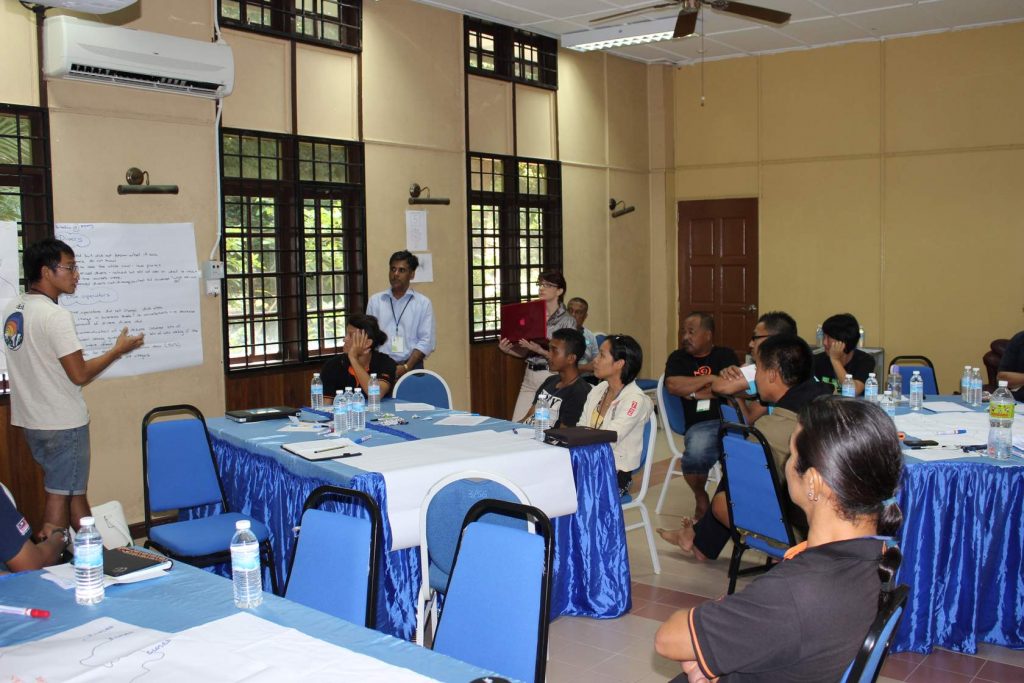Temporary Closures
Under stressful conditions, such as during unusually warm periods or after severe storms, corals can be more susceptible to disease and other sources of mortality. In some instances, restricting activities or closing reef areas can be an important strategy for managers to minimize impacts on reefs during temporary increases in environmental stress or during periods of recovery.
Threats that might be the focus of additional management efforts during times of high coral stress include:
- Wastewater discharge
- Physical contact from divers or anchors
- Fishing (especially of herbivores)
Where suitable regulations exist, managers can establish temporary site closures or exclusion zones if they believe that this will improve the outcomes for corals. However, there are important considerations when contemplating site closures. Managers should recognize the potential impact on tourism businesses and fishing communities, as well as the implications for relationships with stakeholders. Social impacts can be minimized and compliance maximized through engagement strategies aimed at helping stakeholders understand the situation and participate in designing management responses.

During the 2013 bleaching event, stakeholder learning workshops were held in multiple locations in Malaysia, Thailand, and Indonesia to identify potential management actions during bleaching events. Credit: James Tan Chun Hong
Recognizing When Corals Need Help
The first step in helping corals through stressful periods is recognizing when they are under pressure. Stressful conditions can be indicated by changes in certain environmental parameters, such as elevated temperatures, unusual cold spells, or unusually high turbidity. There can also be more direct indications that corals are under stress, such as increases in occurrence of disease or bleaching. Bleaching can be a particularly important sign, as it is both readily observed and a reliable general indicator of stress (i.e., corals often bleach when exposed to unusually high temperatures, unusually low temperatures, pollutants, decreased salinity, etc.). Monitoring programs designed to provide early warnings of stressful conditions or signs of stress can be crucial to identifying when corals might benefit from additional management efforts.
Protecting Herbivores during Recovery Phase
Healthy coral reefs are more likely to be able to bounce back from acute incidents (such as bleaching events that cause mass mortality, or severe storms). However, the recovery process can be significantly slowed if key processes, such as herbivory, are at reduced levels.
Temporary bans on collecting herbivores at reef sites that have suffered impacts can help with reef recovery and may be considered by managers as part of a recovery assistance strategy. However, bans may need to be in place for several years, at least until damaged reefs have passed through the early stages of recovery.
